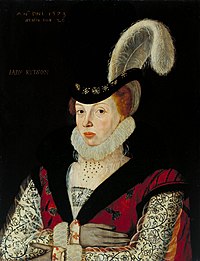Analysis of The Lady Oriana
John Wilbye 1574 (Diss) – 1638 (Colchester)
The Lady Oriana
Was dight all in the treasures of Guiana;
And on her Grace a thousand graces tended:
And thus sang they, fair Queen of peace and plenty;
The fairest queen of twenty:
Then with an olive wreath, for peace renowned,
Her virgin head they crowned:
Which ceremony ended,
Unto her Grace the thousand graces bended.
Then sang the shepherds and nymphs of Diana,
Long live fair Oriana.
| Scheme | AABCCDDBEAA |
|---|---|
| Poetic Form | |
| Metre | 0100010 11100101010 01010101010 01111111010 0101110 1111011101 010111 110010 10010101010 11010011010 1110010 |
| Closest metre | Iambic pentameter |
| Characters | 389 |
| Words | 71 |
| Sentences | 3 |
| Stanzas | 1 |
| Stanza Lengths | 11 |
| Lines Amount | 11 |
| Letters per line (avg) | 28 |
| Words per line (avg) | 6 |
| Letters per stanza (avg) | 311 |
| Words per stanza (avg) | 69 |
Font size:
Submitted on May 13, 2011
Modified on March 05, 2023
- 21 sec read
- 54 Views
Citation
Use the citation below to add this poem analysis to your bibliography:
Style:MLAChicagoAPA
"The Lady Oriana" Poetry.com. STANDS4 LLC, 2024. Web. 28 Apr. 2024. <https://www.poetry.com/poem-analysis/24229/the-lady-oriana>.


Discuss this John Wilbye poem analysis with the community:
Report Comment
We're doing our best to make sure our content is useful, accurate and safe.
If by any chance you spot an inappropriate comment while navigating through our website please use this form to let us know, and we'll take care of it shortly.
Attachment
You need to be logged in to favorite.
Log In